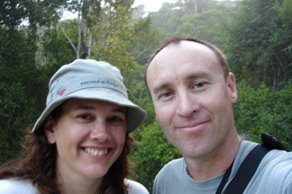Random Lives

[two posts today, don't miss the second one after this]
(Picture is our Canton, from a high vantage point)
It’s not that this can’t be just as true in the United States, doing “normal” jobs, but here it just seems like every day is a new surprise. It might have partly to do with language, and our limited cultural understanding. This would make things that are obvious to the locals, less so to us. Regardless, we started out today just going for another walk. Since we are a bit more focused on trying to find a house to rent, the direction we chose was towards the more developed casario. We thought there might be more options (or at least an option) in that direction.
While we walked I took some photos to try to capture the pastoral nature that I talked about in the previous post. A very nice guy on a horse stopped and we talked to him for about ten minutes, mostly about the differences between the weather here and in the US. We are getting better at this conversation, because it is pretty common. The folks here are kind of proud of their cooler weather, and the fact that it is healthier (and safer) here. Somehow we always talk about the weather in the US to… of course most of them are fairly aware of the weather in the US as they have relatives that live there, or have been there themselves. This guy was also interested in the climate change in the whole world.
After him we met another guy, who we have seen a few times but hadn’t talked to yet. He thought he might have some housing options for us. He is currently building a new house, the conversation got complicated, so we are not sure what house he is thinking of for us, but we do know he has ideas, and we will talk later. After this is where the strangeness begins. We run into the Alcalde (Mayor) who is up from San Ignacio, and a couple of the folks who work in the Alcaldia. We know him from previous meetings and like him. He asks us how we are doing and how we like it up here, ect… All stuff we are pretty good at answering by now. We tell him that we are just out walking and getting to know the communities and the people. Overall, a pretty good conversation. We also mention that we are still looking for a house, he seems to think that we should look closer to Las Pilas (next nearest Canton, also the direction we were heading anyway).
After we head away from him, we go up a road that we haven’t been on yet. We say hello to a young woman carrying masa from the molina as we pass her. She is heading towards her house and we ask if that is where she lives (we do have to practice our Spanish, right?). A man is out on the porch, and we say “hi” to him as well. He asks us why we don’t come down and visit… all of this is how many of our daily walks go… if people want to talk, we stop and tell them about ourselves, and listen to what they say.
Here is where things changed, we were sitting and talking when the Alcalde and his co-workers came down to the house as well. We say “hi” again, and wonder how to gracefully make our exit because obviously something more important than our visit is going on here. The guy we are having a good conversation with will have none of it, and invites us to attend the “matrimonial”… now we are not quite sure, but we now think that the civil component of a wedding is going on here. We try to avoid (the polite thing in our culture) but now the Alcalde is encouraging us as well. So, now we are brought into the house, and made guest of honor. This is the civil part as I mentioned before, later they will have the big church affair. Still, there is more ceremony than you might think. The Alcalde went on for some time about the importance of the institution of marriage; I think that quite a bit of it was for our benefit. He talked about how it was important for the rights of women and children, so that the husband couldn’t just sell the house and leave the wife and kids alone. He also talked about spousal and child abuse. In some ways it seems strange for a marriage ceremony, but he was making a point about the rights that the legal marriage entails.
During the document signing, there were photos taken. I think that there may have been more photos taken of us than the happy couple. Afterwards there was a huge meal, we were of course seated at the table with the Alcalde, and given our plates first. It was actually a very very good meal with good conversation. Afterwards we hung out and talked to the groom. He had been to the US many times, and had lived there for quite a while during his teenage years. We talked about the dangers of the trip (without papers of course), and the different places he had been. This just brought home again how strangely connected to the US the lives of the people down here are… it is so one sided, they depend so much on the US, and are so connected to it, and most folks in the US have no idea where El Salvador is, or what is going on here.






